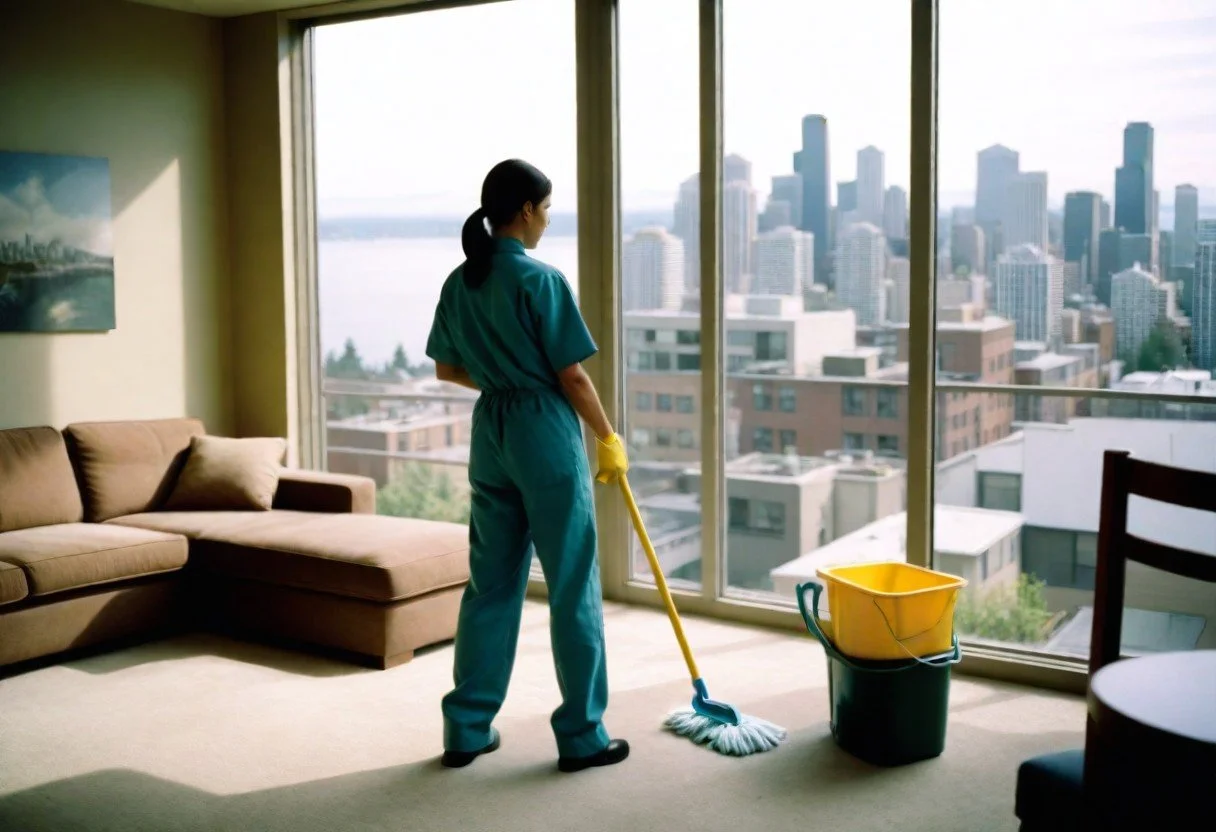What are the threats of a cleaning company?
The cleaning industry, in the recent past, has boomed at a high rate, with both residential and commercial services being offered. The thing that has actually motivated this is the increase in dual-income families and outsourcing of business cleaning. Apartment cleaning Seattle has seen particularly strong growth. Despite some positive outlook, there lie several major threats, and they will adversely influence if not managed effectively the course of operations and profitability of the companies.
Intense competition
Perhaps the biggest threat to cleaning companies is the very competitive nature that characterizes the industry. Start-up costs for cleaning businesses are relatively low, and the barriers to entry are not exactly insurmountable. Hence, every other year, quite a number of new entrants are always seen to take shape within the market, all competing for the same set of customers.
Pushed by such increased competition, prices go down and profit margins get compressed, such that it becomes very difficult for cleaning companies to be able to survive, financially speaking. In such a competitive market, cleaning companies need to focus on differentiation of their services in order to meet this threat and distinguish their business: offering green cleaning, specialized services like post-construction cleanup, or outstanding customer service.
In addition, creating a sterling reputation for quality, reliability, and professionalism is a paramount imperative for cleaning companies among the stiff competition in order to attract and retain a loyal customer base.
High turnover rate of the employees
In that regard, the cleaning firms need to ensure that their employees are provided with maximum satisfaction and retention strategies. These include competitive salary packages and benefits offered, training and development of employees at some levels, good company culture, the recognition and rewarding of employees showing the best performance. Investment in the workforce and the show of value for the cleaners helps companies in boosting retention and makes it a stable, skilled team.
Risk of destruction of the goods
Cleaning inherently involves working in clients' homes and businesses. Thus, for these very reasons, cleaning companies need insurance that covers what happens in the course of work, from accidentally breaking a vase while dusting to possibly causing irreversible damage with cleaning chemicals. This holds true even when dealing with experienced, well-trained cleaners. Accidents happen, and one of them might break a dish, scratch a floor, or even spill a cleaning solution onto a carpet that discolors.
Property damage can make the company pay costly insurance claims, and at the same time, strain customer relations. To minimize such risks, the cleaning companies need to have good training programs that will teach the cleaners about the proper ways of cleaning, how to gently handle fragile items and surfaces, and what to do when damage occurs, which is by accident.
Besides, having enough of general liability insurance coverage is a must also in the financial protection of the business in case the customer does make a damage claim.
Reputational damage from negative reviews
As the era of online reviews, it would seem to now be driving a never-ending sway, cleaning companies feel like they have to be very careful in controlling and managing their digital reputation. Negative reviews, in popular sites such as Yelp and Google, would work extremely injurious, deterring potential customers from company service use.
Common complaints include poor service quality, non-appearance of cleaners, and unresolved damage or theft to property. This could be addressed if cleaning companies had a proactive online review strategy, whereby soliciting feedback from satisfied customers would be part of a plan, and addressing negative reviews or complaints in a quick manner instead of hiding under the bushel. Quick rectification of service issues and responsiveness with alacrity to customer concerns could counteract the impact of negative reviews. Health and safety risks for cleaners
Cleaning work may present a range of human safety and health risks to workers, including exposure to hazardous substances, slip, trip, and fall accidents, ergonomic strain from repetitive motions. Failure to sufficiently guard cleaners against these risks may result in workplace accidents, compensation claims from workers, and legal liabilities of the firm.
For these risks to be minimized and a safe work environment established, cleaning companies should be abreast of OSHA requirements and news, as well as be in touch with industry benchmarks in regard to safety. This would encompass the supply of personal protective equipment, such as gloves and masks, using less toxic green cleaning products wherever possible, and an orientation program for employees covering safe work practices and the right equipment. Prioritizing cleaner safety should ensure that there are fewer costly injuries, and this should also exhibit care from the company towards employee safety.
Making sure we're keeping pace with the latest in apartment cleaning services Seattle is crucial. In common with so many other industries, technological advances are revolutionizing the cleaning sector, with everything from robotic floor cleaners to internet-connected soap dispensers. Scheduling, invoicing, and customer communication software platforms can help cleaning firms that do not embrace such technology become less effective or inefficient compared to those that do. As the industry modernizes, companies should consider making a strategic assessment of technologies that can streamline operations, enhance service quality.
